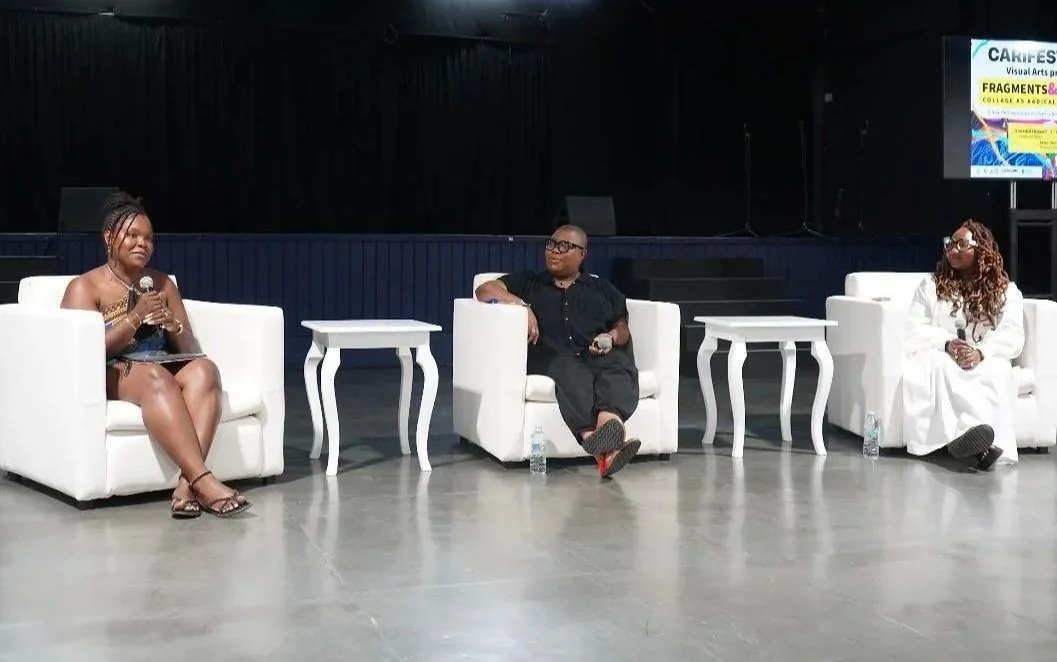CARIFESTA XV: Fragments and Futures
CARIFESTA XV: Fragments and Futures Artist Talk. From left: Akilah Watts, Llanor Alleyne, and Gherdai Hassell. Image courtesy of Gherdai Hassell.
I was honored to be invited by Barbados’s National Cultural Foundation (NCF) and its Visual Arts Coordinator, Akilah Watts, to participate in CARIFESTA XV as both a speaker and workshop co-lead. The festival wrapped up its ten-day, jam-packed run this past Sunday, and I’m still processing the fullness of the experience.
On August 24, I joined my sister in collage, artist Gherdai Hassell, for the panel Fragments and Futures: Collage as Radical Reclamation at Queen’s Park. Guided by Akilah, our conversation dug deep into the heart of our practices: what compels us to make, how we contextualize our work in the world, and the boundaries we create when working with personal and public archives.
For me, collage has always been about accessibility as much as self expression. You don’t need expensive tools or vast resources to begin. Scissors, glue, scraps of paper are humble materials that can open doors to profound self exploration and articulation on interiority. In a world where art-making is often seen as exclusive or unattainable, collage levels the field. It gives us permission to tell our stories, to reclaim and remake images, and to assert our presence in ways that are both intimate and revolutionary.
Speaking alongside Gherdai also reminded me how differently artists can approach the same medium. Though our works may look distinct, the act of mining personal histories, reframing images, and constructing visual language binds us. It was affirming to share the stage with someone equally committed to pushing collage into new and future-looking directions.
It was especially meaningful to share this perspective within the Caribbean context of CARIFESTA. Our region has always had a tradition of making do with what is at hand, of turning that lack and those fragments into something wholly unique, vibrant, and alive. Collage, in many ways, mirrors that cultural instinct as a transformative art practice in reimagination (of materials, of imagery, of perspective) and world building.
I’m grateful to Akilah for curating such an intentional conversation aided by her probing and thought-provoking questions, and to everyone who came out to listen, laugh, and share. These are the kinds of exchanges that remind me why art-making matters as both a personal practice as well as a collective one.
